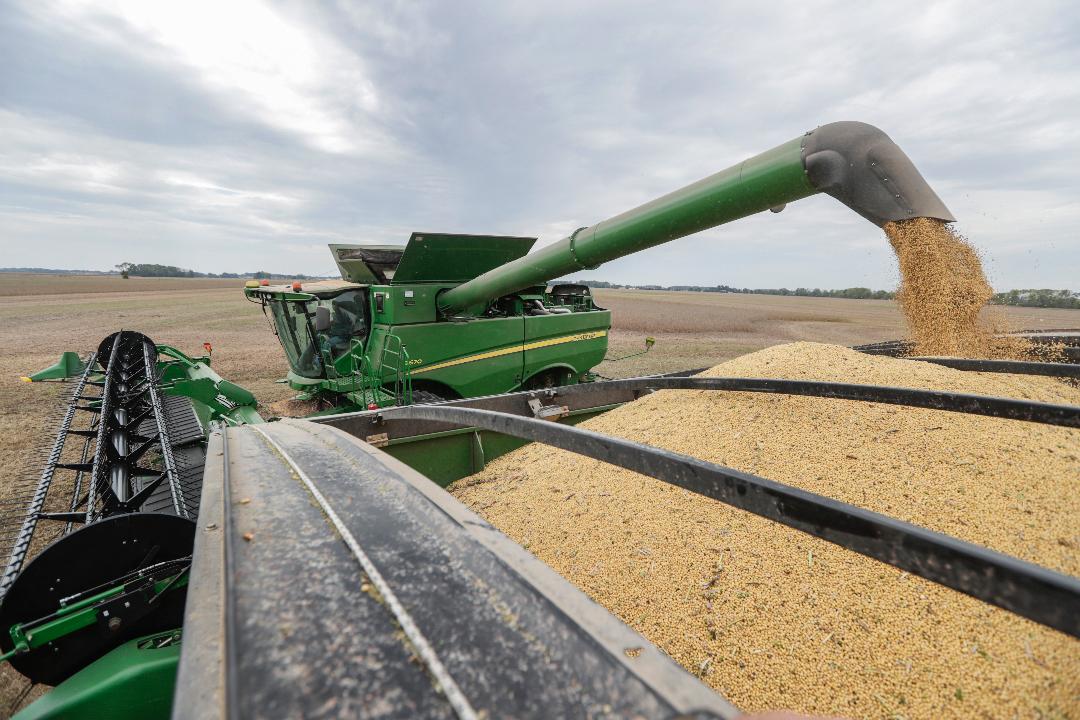US soybean farmers say they feel suppressed by Trump’s tariffs
President Trump tweeted a bullish message regarding U.S. farmers touting the $16 billion in spending intended to offset the effects of the tariffs.
“Farmers are starting to do great again, after 15 years of a downward spiral. The 16 Billion Dollar China “replacement” money didn’t exactly hurt!,” the president said Tuesday.
American Soybean Association Vice President Bill Gordon told FOX Business Trump’s statement doesn’t provide a fair and accurate portrayal of the current state of affairs for American farmers.
“To say we are doing great would be probably an overstatement,” he said exclusively on “The Claman Countdown.” “These markets are definitely still suppressed due to the tariffs.”
China purchased 27 million metric tons of the oilseed from U.S. farmers in 2019 and this year that number stands at 9 million, according to the American Soy Bean Association.
Gordon, a Minnesota soybean farmer, said the U.S.-China trade war is suppressing American farmers and the state of the U.S. economy.
“We’re not profitable in the farming communities and we need to hit these markets back up and try to get back to normal trade,” he said.
The soybean association heads to Capitol Hill Wednesday to speak with lawmakers about the state of the soybean industry ahead of the U.S. negotiating team journey to China Monday for a face-to-face meeting with the Chinese trade delegation.
White House economic adviser Larry Kudlow said he expects China to make a large purchase of soybeans as a goodwill gesture. Gordon said China is not fulfilling its end of the deal of purchasing an estimated 20 metric tons of soybeans.
“China will look to buy the most reasonable price soybeans,” he said. “Right now, we’re of great value, but if they don’t buy that extra 11 million metric tons pretty soon, they’re going to go to South America.”
CLICK HERE TO GET THE FOX BUSINESS APP
Gordon added China’s purchase of South American soybeans will push the purchase of American soybeans into the fall, increase the U.S. stockpile.




















